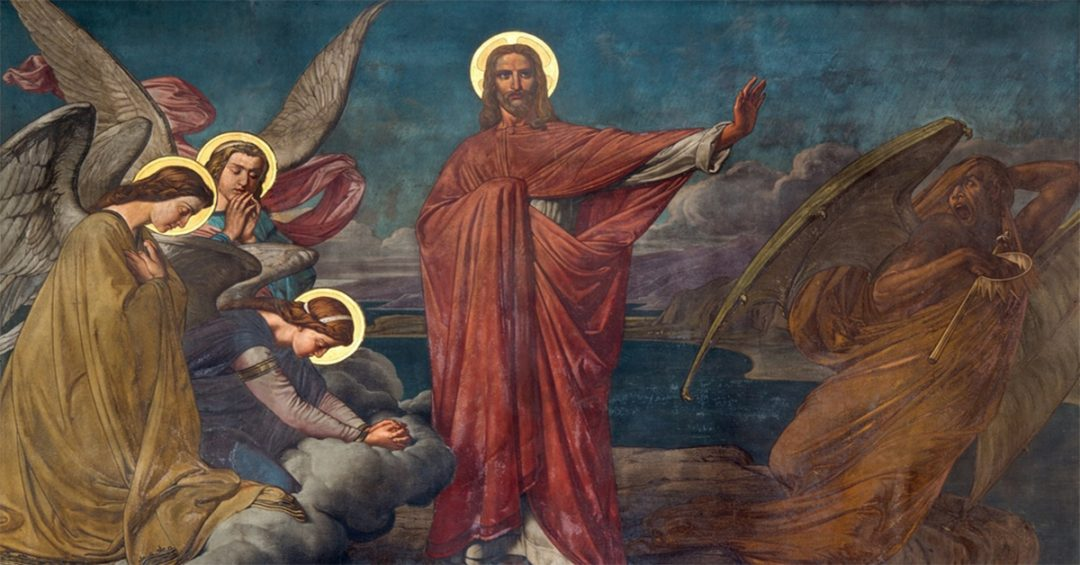Cutting Off Occasions Of Sin
Rev. Marcel Divine Emeka Okwara, CSsR
Homily for the Twenty-Sixth Sunday in Ordinary Time, Year B
Church of St. Bridget of Minneapolis, MN
Sunday, September 29, 2024
Many Christians have certain Bible lines or passages they consider as their favorites. Why? Because those lines or passages inspire, motivate and touch them specially and profoundly. They particularly address their situation in a more significant manner. For instance, John 3:16, “For God loved the world so much that he gave his only Son, that anyone who believes in him shall not perish but have eternal life” is the most widely recognized one-liner from the Gospels and it is the favorite quote for many in the entire Bible. But I am not sure there is any Christian who considers the following text we read from today’s Gospel as their favorite verse: “If your hand causes you to sin, cut it off. It is better for you to enter into life maimed than with two hands to go into Gehenna, into the unquenchable fire. And if your foot causes you to sin, cut it off. It is better for you to enter into life crippled than with two feet to be thrown into Gehenna. And if your eye causes you to sin, pluck it out. Better for you to enter into the Kingdom of God with one eye than with two eyes to be thrown into Gehenna, where their worm does not die, and the fire is not quenched” (Mark 9:43-48).
But is Jesus asking us to literally amputate our hand and foot and to pluck out our eyes in order to avoid committing sin? Not at all! Jesus is using an exaggerated language called hyperbole in literature to urge us to flee from anything that is blocking and hindering our salvation. If these things— hand, foot and eye are a block, a hindrance to your salvation, Jesus says, get rid of them, for it is better to enter eternal life maimed than enter hell with all of your limbs and members intact. Why did Jesus use the symbolism of hand, foot and eye to make his point? The hand is the organ that we use to reach out and grasp things. St. Augustine indicates that the soul is wired for God. The soul is meant for union with God, but we have, instead, reached out to created things with all of our energies and grasped them. What about the foot? We use the foot to set out and travel on a clearly defined and determined path. But we are meant to walk on the path of light, the path of Jesus Christ. But do we always walk on that path? Each of us can remember the many times we walked deviant and sinful paths that made wealth, honor, power, pleasure our only and primary aim in life. What about the eye? It is the organ that enables us to see and behold things. But we are designed to seek after and behold the face of God. But do we always seek God’s face? What prevents us from seeking the face of God always? Whatever they are, Jesus is asking us to cut them out, and to abandon them.
Jesus is asking us to avoid the things that lead to sin. He’s asking us to run from anything, anyone, any event, any place that makes us yield to sin. We call it occasion of sin. For some of us, consumption of alcohol is the occasion of sin. For others, it is the TV, internet, magazine etc. For some, it is the friends they keep and the places they go to. Whatever and whoever it is that will deny us heaven, Jesus says, cut if off. Disengage and discontinue that friendship or membership that is leading you away from God. Walk out now! It’s better to go to heaven friendless than with a host of friends end up in Gehenna. If endless pursuit of wealth is going to exclude you from the Great Banquet of the Lamb of God, Jesus says, it’s time to stop. If membership of social media like Facebook, Instagram, X etc is exposing you and making you prone to do certain things you ordinarily wouldn’t do, the Lord says, end the membership now. It’s better to go to heaven with a few people knowing you, than with a multitude of followers end up in hell.
Sisters and brothers, let’s not treat sin with levity. Sin hurts. It hurts us. It hurts our Church. It hurts our family. It hurts our society. It hurts our community. It hurts our world. It’s not a little thing. Sometimes its effects and consequences are hard to erase. Even though our culture is becoming less religious and more secular, we need to listen to the Good Shepherd. In John 8:12, Jesus says, “I am the light of the world. Whoever follows me will not walk in darkness, but will have the light of life.” Living a virtuous life is not unpleasant, as some people believe. The pleasures of sin may appear enticing and may be offered to us as a source of happiness, it’s a big lie! It’s a big deception! Although sin can excite one’s passions, but it is only a matter of time before one discovers how miserable and unhappy his or her life has become. Sin has two companions: sadness and destruction. Get rid of whatever it is that is hindering your salvation.
God bless you!






